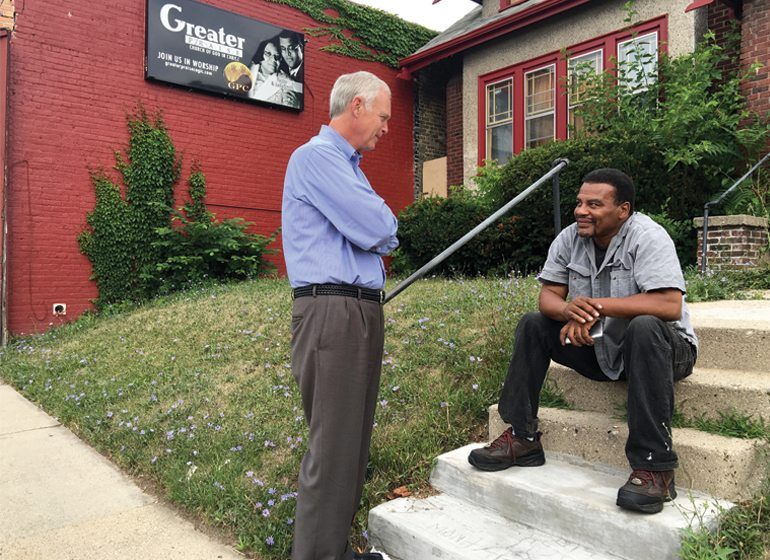
The project name comes from Robert L. Woodson Sr.’s 1997 book, “The Triumphs of Joseph” which outlines how sustainable inner-city renewal comes from those in the community – free of government interference.
This initiative emerged from discussions Owens, who at the time was director of African-American engagement for the Republican Party of Wisconsin, was having with black ministers about Milwaukee ranking No. 1 one in the nation for unemployment among working-age black men.
Smith, founder of Greater Praise Church of God in Christ, located at 54th and Center streets in Milwaukee, bears witness to the personal destruction that happens when people live in poverty and despair; when the path to viable employment can’t be seen or found; when there are no role models to offer hope.
Believing in a better future, Smith and Owens continued talking, and when Owens joined Johnson’s team, the Joseph Project gained traction. Johnson engaged employers who were willing to take a chance with people who needed a second chance.
Bolstad, a retired U.S. Army officer who had experience teaching ROTC, worked with Smith to develop the curriculum for a weeklong training program to prepare individuals for the responsibility and disciplines of a regular work life.
A few large employers in Sheboygan County, including Kohler Co., signed up and the program launched.
Smith understands “the street.” His non-negotiable expectations weed out those who aren’t ready to make the life-changing commitment to employment. It’s not uncommon for him to interview 65 candidates and find 10 to 15 people who are ready to commit.
Candidates must pass a drug test, show up on time daily for classes and demonstrate the right attitude. He tells each candidate, “You have to want this more than we want this for you.”
Bolstad and Smith then facilitate the soft and life skills training, which includes: goal-setting, communication skills, teamwork, conflict resolution, interviewing and presentation skills, spiritual fitness and financial management.
Johnson has participated in every training session, either in person or via conference call, to provide encouragement and support, and to congratulate the graduates. He tells each graduate that his or her success carves a path for future candidates and stresses that “Attitude is most important!”
Over the past 10 months, The Joseph Project has graduated 143 individuals and employed 80 people. Another 31 are undergoing the hiring process, and the program has a 71 percent retention rate.
Paul Bridges, almost 60 years old and a graduate, said, “Having a job means that I have a future!”
The Joseph Project has proven to be a bridge from poverty to independence for those who are ready to commit. Some graduates who now receive a regular paycheck have been able to buy school clothes for their children, rent an apartment for the first time, buy better quality food, purchase a car, and some are even working with a financial planner to plan for retirement.
“The Joseph Project has completely turned my life around,” said Willie McShane, 54. “I used to wake up with all the stresses of the world on me. I didn’t have a clue what to do. Now, I am stress-free and comfortable. I can see tomorrow and have hope. More than anyone, I’m proud of me!”
The Joseph Project is a proven model that works. It has scaled to five employers in Sheboygan and is being replicated in Madison.
When asked what most surprised him about the Joseph Project, Smith said,
“To see how many people really do care about others and want to help!”
As a grassroots program, funding comes from donations and a lot of prayers and resources are desperately needed. Currently, the program has five vans and an SUV that are used to transport workers to and from Milwaukee and Sheboygan employer sites six times daily, seven days a week, racking up more than 10,000 miles per month. Employees receive free transportation for the first month and then pay $10 per day thereafter, which doesn’t cover costs. Donations to support vehicle maintenance, driver salaries and a dispatcher are urgently needed as the winter months approach.
Additionally, employment in the greater Milwaukee area is desired. When asked what seems to be the greatest stumbling block, Smith said,
“Finding employers who are willing to make an exception to candidates who don’t have their GED or a solid work background.”
Johnson added, “We’re committed to making a difference, one person at a time.”
